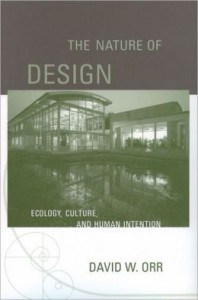“…a child-centered political economy would give priority to democratically controlled communities over the rights of finance capital and corporations—another taboo subject. In a series of decisions beginning with the Dartmouth College case and culminating in the 1886 Santa Clara case, the U.S. Supreme Court gave corporations the same protections given to individuals: We live in the shadow of a super-species, a quasi-legal organism that competes with humans and other life-forms in order to grow and thrive…. It can “live” in many places simultaneously. It can change its body at will—shed an arm or a leg or even a head without harm. It can morph into a variety of new forms absorb other members of its species, or be absorbed itself. Most astoundingly, it can live forever. To remain alive, it only needs to meet one condition: its income must exceed its expenditures over the long run. (Lasn and Liacas 2000, 41)
Corporations now rival or exceed the power and influence of nation-states. The largest 100 control 33 percent of the world’s assets but employ only 1 percent of the world’s labor (ibid.). They control trade, communications, agriculture, food processing, genetic materials, entertainment, housing, health care, transportation, and, not least, the political process. If there is anything left out of their control, it is because it is not profitable. Some routinely lie, steal, corrupt, and violate environmental laws with near impunity. As a consequence there is no safe future for children, nor are there safe communities in a world dominated by organizations that exist partly beyond the reach of law and owing no loyalty to anyone or to any place. The solutions are obvious. Corporations are chartered by the state and they can be dissolved by the state for just cause. We have implemented a “three strikes and you are out” standard for criminals; why not hold corporations and the people who serve them to the same standard? Wayne township in Pennsylvania, for example, bars any corporation with three or more regulatory violations within seven years. Many are asking for community control of investment capital and major assets. Nine midwestern states forbid corporate farm ownership. What attorney Michael Shuman (1998) calls “going local” requires a rejuvenation of democracy beginning by establishing local control over resources and investment decisions.
Finally, as farsighted and revolutionary as the decision of the Philippine court is, there is another and collateral right to be preserved, which is children’s capacity to affiliate with nature and the places in which they live. Biologist Hugh Iltis describes that capacity thus: “Our eyes and ears, noses, brains, and bodies have all been shaped by nature. Would it not then be incredible indeed, if savannas and forest groves, flowers and animals, the multiplicity of environmental components to which our bodies were originally shaped, were not, at the very least, still important to us?” (quoted in Shepard 1998, 136). Harvard biologist E. O. Wilson calls this capacity “biophilia,” which he defines as “the urge to affiliate with other forms of life” (1984, 85). “We are a biological species and will find little ultimate meaning apart from the remainder of life” (ibid., 81). Rachel Carson defined this capacity simply as “the sense of wonder” aided and abetted by “the companionship of at least one adult” (Carson [1956] 1984, 45).”

